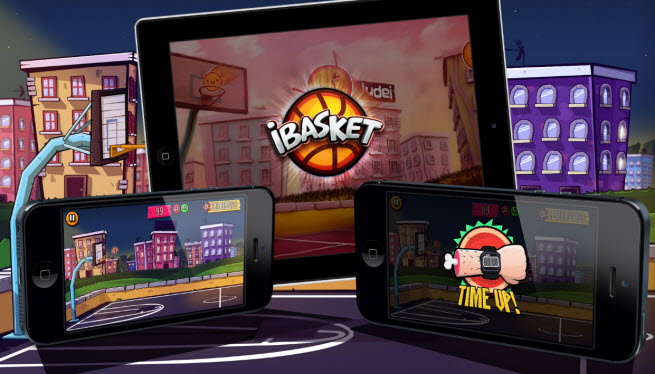Ludei has been making games work better in the HTML5 web format for the past couple of years, and now the company is announcing a lot of progress on that front. Ludei is revealing today that its CocoonJS technology will be used in Nickelodeon games so that they can run at acceptable speeds on Android mobile devices.
This will enable Nickelodeon to run cool HTML5 titles in the game section of its Emmy Award-winning Nick App for Android devices. Nickelodeon is using Ludei’s technology to speed up the performance of the games, said Eneko Knorr, the chief executive of Ludei, in an interview with GamesBeat.
As the lingua franca of the web, HTML5 is becoming the format of choice for making cross-platform apps. But when it comes to games, HTML5 apps run too slow. So Ludei has created a platform to turn the HTML5 games into fast applications that takes advantage of the graphics hardware in mobile devices.
Making HTML5 games run fast is important because it will simplify life for game developers. Right now, they have to use valuable resources either creating cross-platform but slow games or fast native apps that have to be rewritten for each new platform.
“Technologies like HTML5 allow us to create games and content that are playable across multiple platforms,” said Dhimiter Bozo, the vice president of engineering at the Nickelodeon Group. “Performance is a key metric for Nickelodeon and is a goal we aim for with every game. Ludei’s easy-to-use solution will help us deliver a consistent gaming experience in our Android app.”
Ludei makes cloud-based services for HTML5 apps and games, helping them run faster and perform the same functions as if the apps were native to the hardware it is running on. One of the main services is accelerating the games so they can run at faster speeds.
“Nickelodeon’s use of HTML5 technology is another example that HTML5 is ready for prime time, and Ludei’s technology will be instrumental in powering HTML5 game deployment,” said Knorr. “Nickelodeon’s focus on HTML5 technology for its game development strategy is a big vote of confidence for HTML5 and its ecosystem. It looks like 2014 will be a big year for HTML5, and engagements like this one further underscore Ludei’s role driving the mobile HTML5 app-development industry.”
Ludei was founded in Bilbao, Spain, and it has since moved to San Francisco. The company started working with Nickelodeon about 18 months ago. Now the company has begun to spread out and work with others.
CocoonJS is scheduled for release on Android in mid-December. At that point, Nickeodeon will be a flagship leader in its adoption.
“For us Nickelodeon is a very important customer,” Knorr said.
Knorr said that the company is working with another large, unnamed Fortune 500 company as well. But he is not ready to announce that deal.
“This means that HTML5 is finally read for prime time,” Knorr said.
But he adds that it is only when used in conjunction with Ludei’s CocoonJS technology, which improves overall performance by 10 times and allows for multichannel sound. It also enables an HTML5 game to access device-specific hardware features such as a camera or accelerometer. Ludei’s CocoonJS enables WebGL-based games to run iOS and Android devices.
More than 10,000 developers are using CocoonJS, including three of the top 20 game publishers in the world. More than 500 games have been published with CocoonJS, including ScribbleMix, iBasket, Lunch Bug, Bubble Soccer, and Rhino Hero. Developers can code a game once and publish on every store with one click. Those stores include Apple App Store, Google Play, Windows, Amazon, Nook, FirefoxOS, Tizen, Pokki, and more.
Ludei’s tool can be used to quickly port HTML5 games so that they run on the iPhone and Android devices as if they were native code, or specially written to take advantage of every piece of hardware in the mobile device, such as its graphics chip. Many HTML5 games run in a mobile browser that does not take advantage of native hardware. Consequently, they run at a speed of 15 frames per second or so. But CocoonJS games can reach more than 100 frames per second, resulting in much smoother gameplay and fluid 3D animations.
The CocoonJS is a hybrid solution that blends HTML5, CSS, and JavaScript. It uses OpenGL libraries to take advantage of the native hardware. Ludei, which has offices in San Francisco and Bilbao, Spain, created its own successful native mobile games iBasket and Slide Soccer.
Ludei raised $1.5 million in funding a few months ago.
VentureBeat's mission is to be a digital town square for technical decision-makers to gain knowledge about transformative enterprise technology and transact. Learn More



